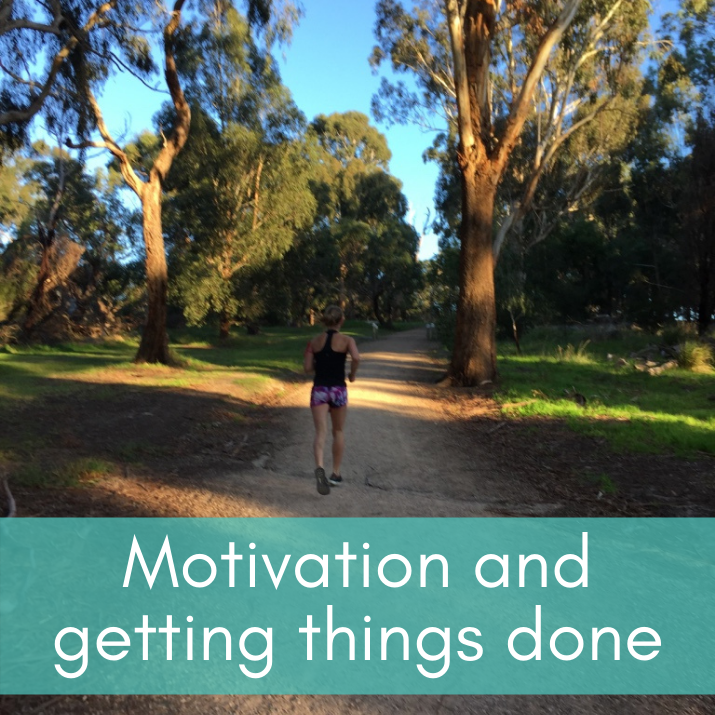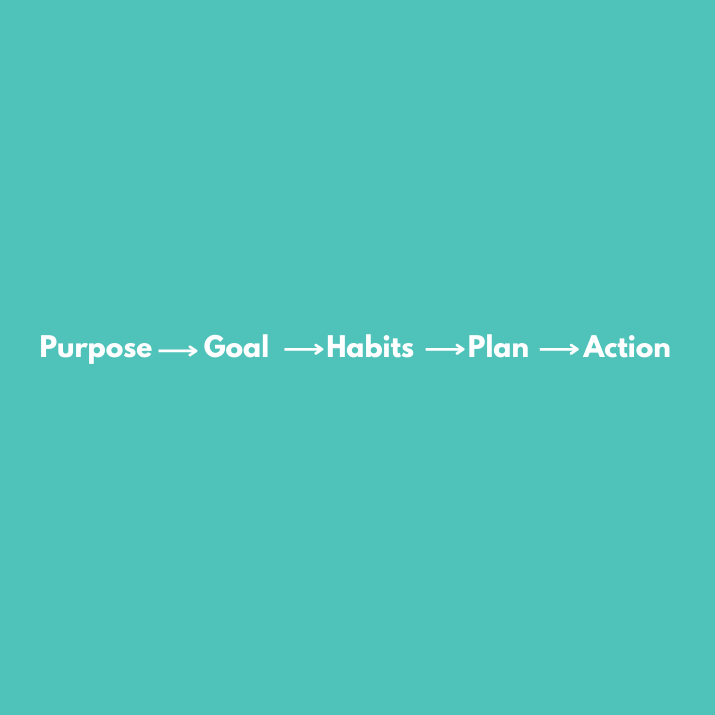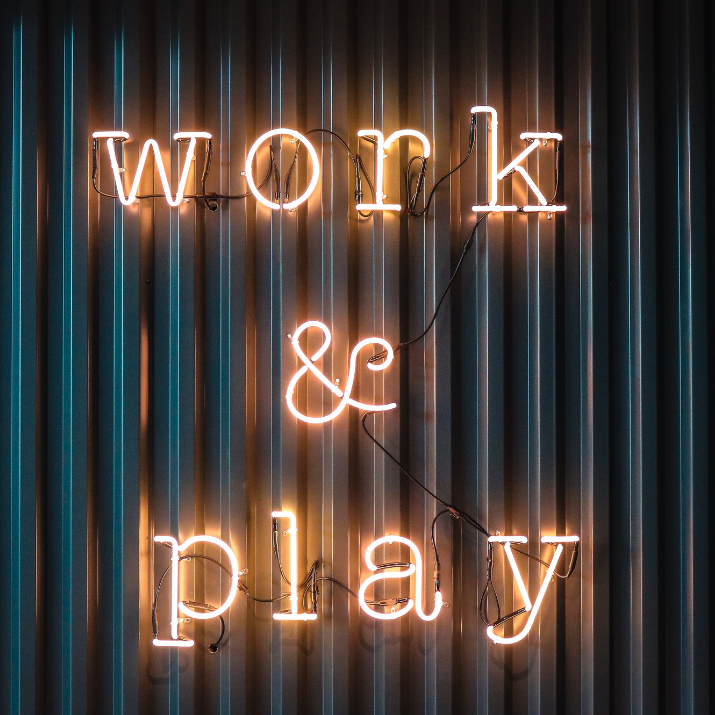
Today’s post answers reader questions on the topic of motivation and getting things done. You can read previous answers to readers’ questions here.
Motivation is a topic I receive many questions on and the below is a sample from the most recent PWK survey:
- How can I find the motivation to do all the wonderful things you write about?
- How do you maintain enthusiasm for life!? In the face of so many competing priorities?
- How do you motivate yourself when energy is low and appreciation for what you do for your family is absent?
- How do you motivate yourself when energy is low and lots going on?
- How to keep motivated on change?
I have written posts on motivation before, but as we head into the colder months, I thought it would be a good time to revisit it. The colder months and in particular winter can be a time when we find it hard to stay motivated.
It is very important to note that I am not always motivated to do the things I do. In my 20 plus years of parenting, I have learnt that relying on being motivated to get things done is not a sustainable approach. Motivation dries up, goes missing or simply isn’t enough to do what you have to do. Waiting for it to arrive can see you waiting for a very long time too!
So if it isn’t motivation that helps me get stuff done, then what is it? It isn’t one trick, hack or overarching approach. It is a combination of things that work for me and I will start first with my overarching approach and then get into some more daily hacks I have for myself when I find it hard to get going or just do the work/task I need to do.
Know your purpose

Purpose can sound like a bit of a buzzword but it is truly important. We can get all sorts of things done in life but it will not feel truly meaningful unless it aligns with our purpose. Having a purpose is about knowing what you want to get out of life and the sort of impact you want to have.
Purpose gives me meaning to my days, it allows me to get perspective in challening situations, gives me a sense of direction over the long term and helps me make decisions. Studies show that it also may help me live longer!
A 2009 study of over 73,000 Japanese men and women found that those who had a strong connection to their sense of purpose (which they call ikigai) tended to live longer than those who didn’t. Additionally, in his study of “Blue Zones” (communities in the world in which people are more likely to live past 100), Dan Buettner identified the factors that most centenarians share, one of them being a strong sense of purpose. In 2014, researchers used data that tracked adults over 14 years and found that “having a purpose in life appears to widely buffer against mortality risk across the adult years.”
Why Is Life Purpose Important? – University of Minnesota
Simply having a purpose is not enough though. You need to begin living your life in alignment with your purpose and taking the right steps to do so. For me this means:
- I make sure that the yearly goal I choose is in alignment with my purpose
- I determine what habits I need to focus on to help me achieve my goal
- I create plans to make sure I will achieve my habits and my commitments for work and family
- I take daily action
Set routines for yourself
If it is not on the schedule it is unlikely to get done! For example I have a weekly exercise routine that I stick to 95% of the time. To help make that happen, I have supporting routines like getting my running gear ready each night before I go to bed and making sure I get into bed at the right time so I can get enough sleep before my alarm goes off.
After dinner I have a routine of making sure the house is organised and ready for the next day and then go around and say good night to all the kids and check in on how they are. Routines allow me to flow from one task/activity to the next without having to think too much about what I am doing. It helps prevent procrastination and decision making. Making decisions is tiring and if you are trying to make them at night when you are already tired, then there is a good chance you won’t make the most optimal choice. Having a number of routines across the day for myself helps get stuff done with minimum effort and fuss.
Pair tasks
My goal for this year is to Cultivate routines to expand my knowledge and experiences and I have some habits like reading that I am absolutely loving establishing and spending time on. It is not hard to get myself to open up a book at start reading. It can however be hard to look at the mountain of washing that needs to be folded and get it done though!
To help kick myself into action if I am struggling, I will give myself a little sweetener and pair a task I don’t feel like doing with something I do like. For example, I will save my favourite podcast for the week and only allow myself to listen to it as I start folding the mountain of washing.
Remember the consequences
There have times when I haven’t stuck to my routine and done things like weekly prep or make the lunches the night before (when I used to make them!). Inevitably the day or week would run less smoothly because of it and when this happens, I make myself take a mental note about why this happened. I want to remember that my lack of planning and preparation caused me stress or other issues. So then when I am tempted again not to do the work, I think back about the consequences of inaction and find this helps me to get back on task.
I also remember the consquences when I have put in the effort and things have gone well or I achieved something that gave me a great sense of satisfaction. Being mindful of action and reaction can help you set up positive habits. For example, knowing that menu planning for the week leads to less stress and more enjoyable meal times keeps me menu planning even if I don’t feel like doing it.
Make it small
If a task looks too big or like it will take too much time it can be easy to talk ourselves out of it. We can come up with a hundred excuses as to why we can’t do it or don’t have enough time. By being smart about the way we put items on our to do list we can get ourselves to do more. When I am putting items on my master to do list for the week, I break up bigger tasks into smaller ones. It is much easier to get yourself to do a task that you know is only going to take 10-15 minutes than one that requires hours.
If you cannot break the task down in to chunks you can simply break it down into time blocks. If you need to declutter your wardrobe but find you have been putting it off, then commit to doing 15 minutes of work and set a timer. You will most likely find once you get started you will be keen to keep going and finish the task but if not, you can do a series of 15 minutes blocks of work to complete the task.
Prioritise sleep
My ability to get things done is dramatically reduced when I am tired. I prioritise sleep knowing that I am more productive, make better choices and am more likely to work on hard or challening things if I am well rested.
For some parents with young ones prioritising sleep can be challenging when you are being woken up at night but for many parents, prioritising sleep actually requires more internal discipline. It is easy to frit away time in the evening scrolling on your phone or watching more episodes of your favourite shows than you intended. This can be especially tempting when you are going through times of busyness and have a lot on.
This phenomomen even has its own name – revenge bedtime procrastination! It describes the decision to put off going to bed and sacrificing sleep for more time on discretionary activities.
People who engage in bedtime procrastination know and generally want to receive enough sleep, but they fail to actually do so. This is known as an intention-behavior gap.
One explanation for this gap is a failure in self-regulation or self-control. Our capacity for self-control is already at its lowest at the end of the day, which may facilitate sleep procrastination. Some people may be naturally inclined to procrastination in general, including around bedtime. In addition, daytime demands at work or school may reduce the reserves of self-control available in the evening.
Sleep Foundation
To help me stick to my bedtime, I don’t watch shows at night and limit my phone use to only necessary communications after dinner.
Acknowledge your work
So much of the hard work of parenting goes by unacknowledged and often unappreciated. Waiting for the kids to thank you for doing their washing and mopping the floors for example, might have you waiting a very long time. There are a few things I do to acknowledge the work I do myself:
- My to do list – it gives me great feedback on how I am progressing and the work I have completed.
- My monthly reviews – lots of what I do and want to achieve doesn’t show up on my to do list but I do capture a significant amount of what I do in my monthly reviews each month. At times when I am feeling a bit meh I will go back and read them and I find it helps give me perspective and focus to keep going.
- Dinner time chats – kids really focus on themselves and can be completley oblivous to the work I have been doing in the home. Bringing up key tasks or things I have done for the family on occasions (in a modest way of course!) can help bring it to their attention and they will naturally be appreciative or grateful once they are aware.
Allocate time for things I love

A huge drag on motivation or willingness to do things can come from feeling stressed or overwhelmed. To prevent this I make sure that I allocate time regularly to things I love.
Stress is not just the presence of challenging situations. It’s also the absence of play, beauty, nature, laughter, socialisation, and fun. {Source}
If I spend time doing things like running, socialising with friends, heading out into nature, volunteering etc then I find it easier to do things for others and don’t have the build up of resentment that can make it hard to get things done. And as noted above if it isn’t scheduled it won’t get done, so I make sure that part of my planning involves scheduling in and creating routines for things I love.
What about you? What strategies do you put in place to get things done?
If you are a podcast listener, then you might like to listen to these this family life episodes on a similar topic:
